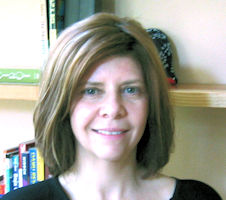

 |
Professor Bonnie NardiUniversity of CaliforniaThank you very much. for this lovely honor. It is especially nice to see efforts to keep our research communities alive and well during this isolating time. |
Bonnie Nardi is Professor (Emer.) at the School of Information and Computer Sciences at the University of California, Irvine. An anthropologist, she is interested in computing and political economy, especially with respect to sustainability. She believes radical approaches to sustainability are needed, and is a founding member of the Computing within LIMITS Workshop Series. LIMITS situates computing within the finite physical limits of Earth and urges us to take these limits as a first premise in our work.
For many years Bonnie has studied social life on the internet. She conducted some of the first empirical studies of instant messaging and blogging, and has written about social life in video gaming. Her most recent book, Heteromation and Other Stories of Computing and Capitalism, co-authored with Hamid Ekbia, was published in 2017 by the MIT Press. The book she receives the most email about is My Life as a Night Elf Priest: An Anthropological Account of World of Warcraft (University of Michigan Press, 2010). Bonnie co-edits the MIT Press Acting with Technology Series with Kirsten Foot and Victor Kaptelinin. In 2020 she received an ACM SIGCHI Social Impact Award.
“In the 1980s I was living in Silicon Valley and saw up close the stunning possibilities of the newly minted personal computer. I really wanted to study this game changer! But back then, anthropology was not interested technology (unless it was an ancient stone axe), so I drifted to computer science, first working in industry in research labs where I could publish, and then back to academia, where I had started in anthropology. I was surprised at how welcoming computing was to empirical studies of people using technology, and have found the interdisciplinarity of the human-computer interaction community (my main community) stimulating and inclusive.
My “message” to young persons is to learn the academic game and play hard, understanding that authenticity and passion score more points in the long run than attempting to be tactical. Note too, that we work from a position of immense class privilege. Any complaints should be about those less fortunate than we are. These two thoughts are perhaps encapsulated in the sage words of American baseball: It’s a long season and There’s no crying in baseball. I look forward to reading your work!”
